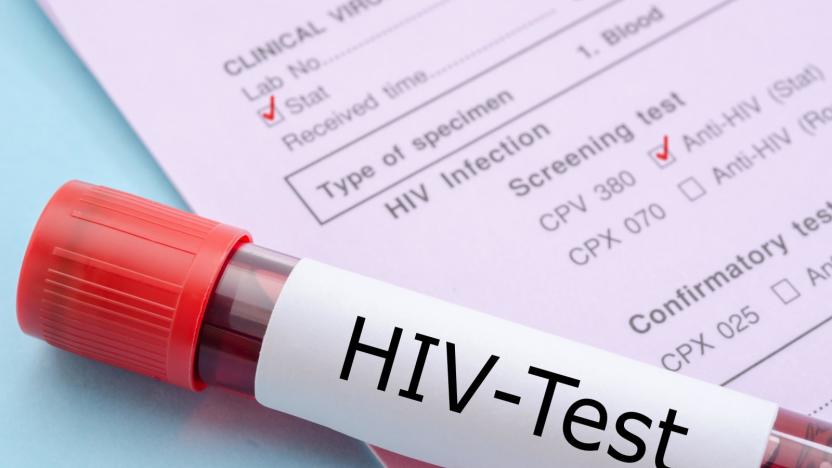immunization
Latest

Lasers and smart pills could eventually replace injections
While getting shots or blood work isn't anyone's idea of fun, roughly 10 to 20 percent of American adults suffer from trypanophobia, the extreme fear of hypodermic needles and injections. This phobia can prevent people from partaking in routine medical exams, receiving life-saving vaccines or even properly managing their blood-glucose levels (should they suffer from diabetes). However, a pair of novel injection systems offers the promise of putting those critical medicines into our bodies without ever breaking the skin.

HIV vaccine delivers promising results in human tests
A Harvard-led team of scientists has made important progress in the quest to prevent HIV infections. They've had early success testing a multi-strain vaccine in humans -- everyone who received the drug produced at least some kind of anti-HIV immune response, with at least 80 percent producing more advanced responses. The researchers also found that the same vaccine protected 67 percent of rhesus monkeys against simian-human immunodeficiency virus, which suggests it might be effective against HIV.

Researchers want to block HIV with a 'therapeutic' virus
Despite the best efforts to date, a vaccine for HIV remains beyond our reach. It seems every time researchers get close, the virus mutates to stay a step ahead, creating a biological arms race. But a team of scientists at the University of Texas believe they may have found a way to hobble HIV and drastically reduce its virulence. They want to infect susceptible cells with a "good" virus first, one that will effectively immunize them against HIV.

Vaccine-delivery patch uses microneedles to do its dirty work, looks good in testing
This dissolving microneedle patch has been in development for well over a year now, but Mark Prausnitz -- a professor in the Georgia Tech School of Chemical and Biomolecular Engineering -- along with a number of other GT and Emory University colleagues, have just now wrapped up a lab trial that brings it that much closer to market. As the story goes, this vaccine-delivery patch, which is based on hundreds of microscopic needles that dissolve into the skin, was recently seen as reliable in a round of mice tests, and the powers that be have also concluded that these patches would cost "cost about the same as conventional needle-and-syringe techniques, and may lower the overall cost of immunization programs by reducing personnel costs and waste disposal requirements." Oh, and did we mention that you could apply 'em on your own with little to no pain? FDA approval, we're waitin' on ya.


